How to Make Easy DIY Flower Fertilizer: Homemade Plant Food
If you want to give your flowers a boost of nutrients without breaking the bank, I have just the solution for you, homemade DIY flower fertilizer.
Using simple household items and natural ingredients, you can create your own plant food that will nourish your flowers and help them thrive.
I’ll share some easy recipes for DIY flower fertilizers, the benefits of each type, and how to make and use them. Let’s get started!
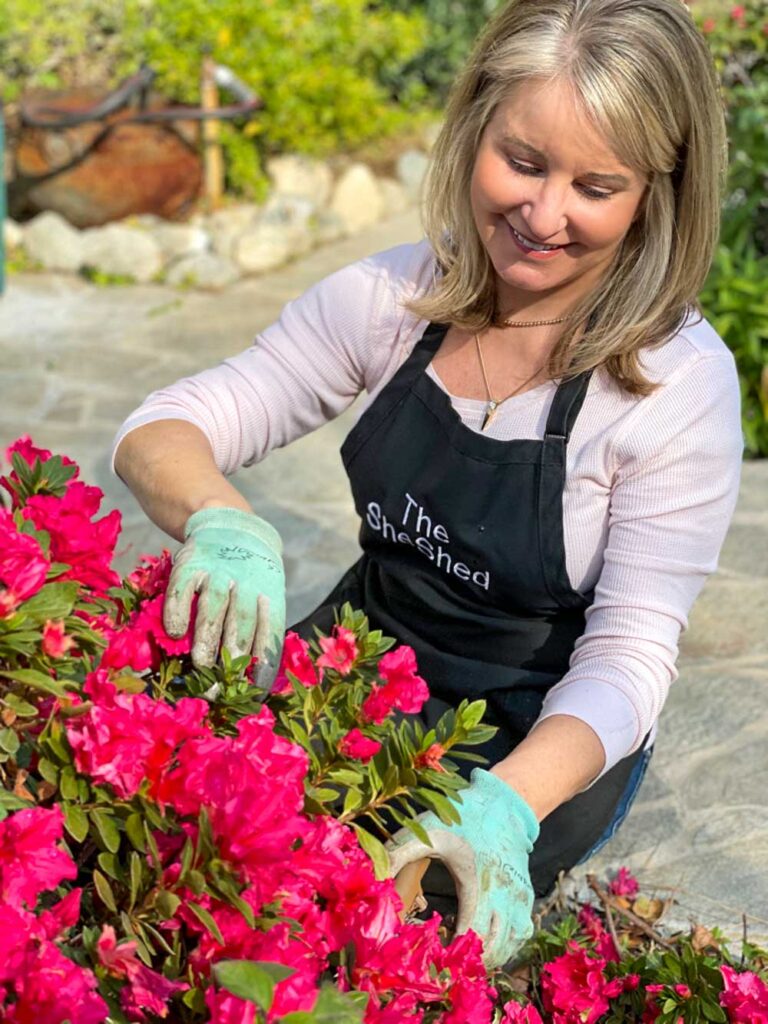
How do you Make DIY Flower Fertilizer?
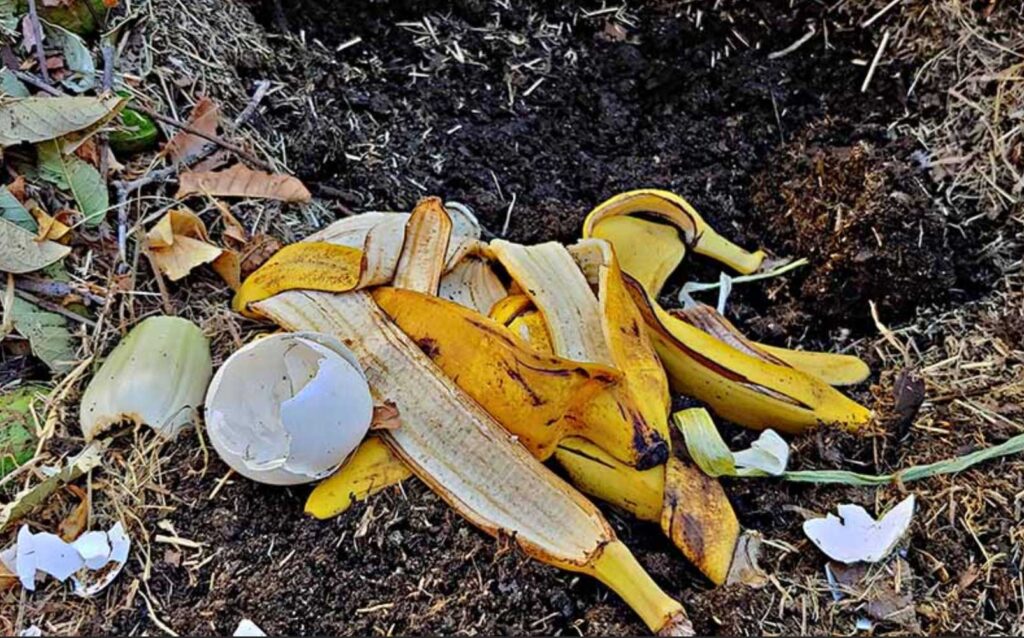
There are many ways to make your own flower fertilizer. From banana peels to coffee grounds to eggshells, let’s explore the benefits of each type of fertilizer and the step-by-step instructions on how to make and use them effectively.
Banana Peels
Bananas are not just a tasty snack; their peels make fantastic natural fertilizer for your flowers. They are rich in potassium, an essential nutrient for flowering plants.
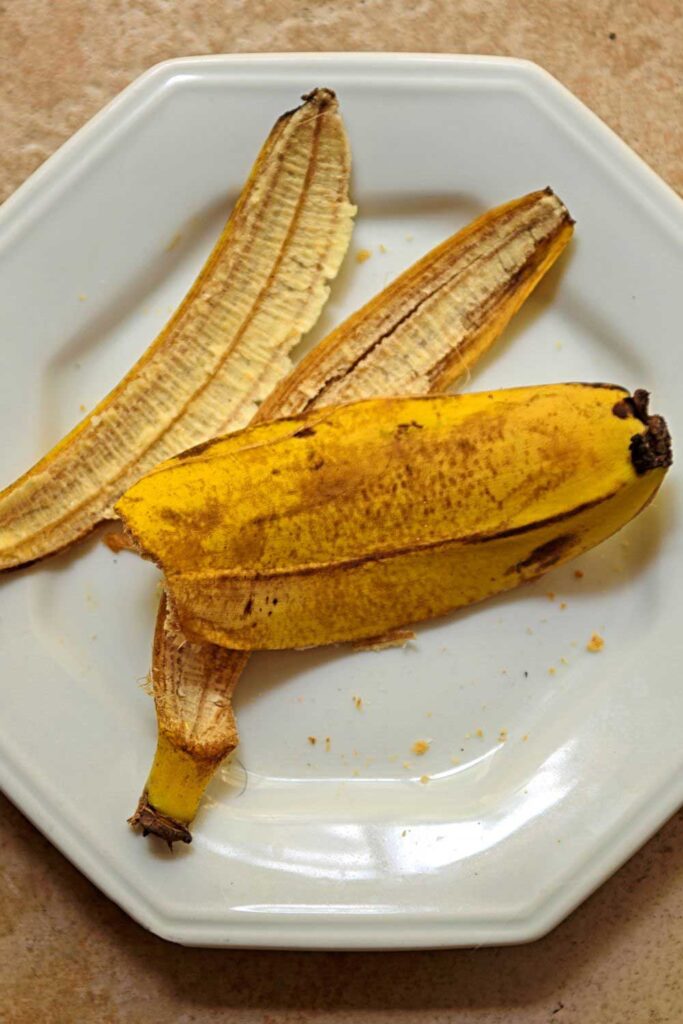
How are banana peels helpful in flower gardens?
- Banana peels provide a natural boost of much-needed potassium. Potassium is crucial for overall plant health, helping regulate water uptake, promoting strong root development, and enhancing flower and fruit production.
- Because banana peels decompose relatively slowly, they are an excellent source of long-term plant nutrition.
- In addition, aphids and spider mites dislike the odor of the peels and act as a deterrent for these pests.
making banana peel fertilizer
- Collect a few banana peels (preferably ripe ones).
- Cut the peels into small pieces to speed up decomposition.
- Bury the pieces around the base of your plants, ensuring they are well-covered by soil. Over time, as the peels break down, they release nutrients into the soil, providing a slow and steady supply of potassium to your flowers.
How to make Banana Peel Tea
You can also make tea with banana peels to feed your flowering plants.
Ingredients:
- 2-3 banana peels
- 1-quart jar
- Water
Instructions:
- Chop the banana peels into small pieces.
- Place the chopped banana peels in the jar.
- Fill the jar with water, ensuring the banana peels are completely submerged.
- Close the jar and let it sit for 3-7 days.
- Dilute the tea with water in a 1:5 ratio. For example, if you have 1 cup of tea, mix it with 5 cups of water.
- Water your plants with the diluted banana peel tea and the peel pieces.
Tips:
- You can store the tea in the refrigerator for up to 2 weeks.
- The tea is a good source of potassium, which is essential for flowering plants.
- You can also use banana peel tea on other types of plants, but it is especially beneficial for flowering plants.
Coffee Grounds
Did you know that coffee grounds are not only great for making a delicious latte but for fertilizing your flowers as well? Coffee grounds are an excellent source of nitrogen, a nutrient crucial for foliage growth and vibrant blooms.
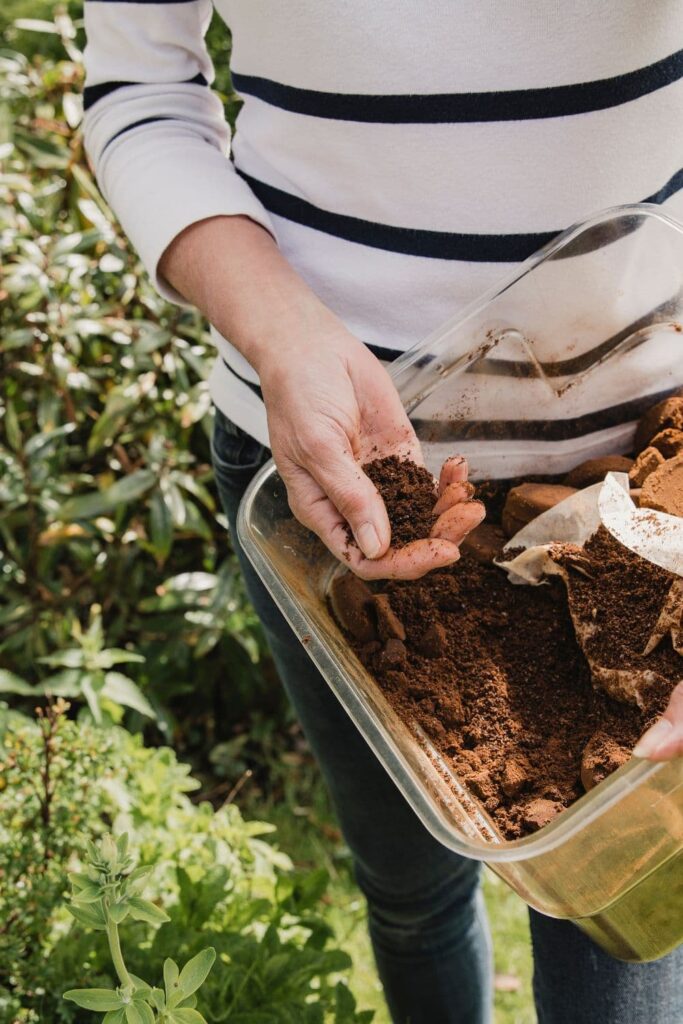
Using coffee grounds benefits your plants and soil
- Coffee grounds provide a natural and organic nitrogen boost to your plants, which can result in healthier, greener foliage.
- They are an excellent source of organic matter that improves soil structure and are known to attract earthworms.
- Coffee has a slightly acidic pH, which can benefit certain plants.
- Some garden pests, such as slugs and snails, dislike the texture and scent of coffee grounds.
How to make DIY FLOWER fertilizer with coffee grounds
- Save your used coffee grounds and let them dry.
- Once dry, spread a thin layer on top of the soil around the base of your flowers, avoiding direct contact with the stems to prevent moisture-related issues.
Alternatively, mix the coffee grounds with water and create a nutrient-rich liquid fertilizer.
- Combine equal parts coffee grounds and water, let the mixture sit overnight, then strain it to remove any sediment.
- Dilute the liquid with additional water (1:3 ratio) and use it to water your flowers.
Eggshells
Using eggshells in the garden is a quick and easy way to add calcium and other nutrients to your plants. Eggshells are made primarily from calcium carbonate and contain small amounts of Iron, Zinc, magnesium, and sulfur.
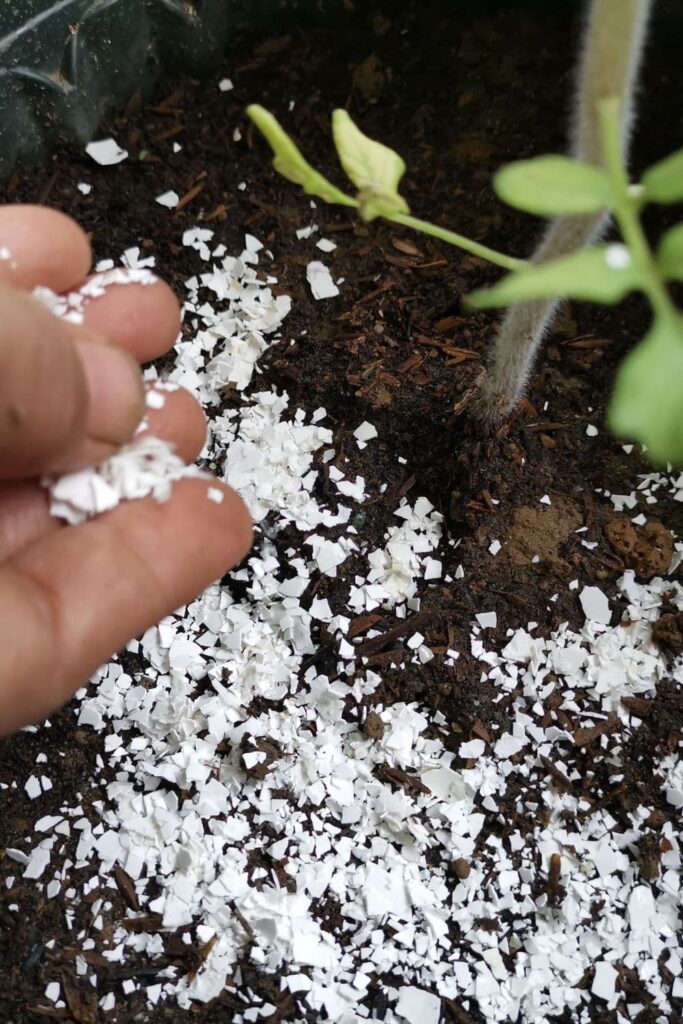
Benefits of using eggshells in the garden
- The nutrients in eggshells can help lower the acidity of the soil in your garden, creating a more alkaline environment, which some plants prefer.
- Certain flowering plants, like tomato plants, can develop blossom-end rot or black spots on the ends of their fruit due to calcium deficiency. Adding calcium from eggshell fertilizer can help these plants thrive. Eggshells also help to create strong plant roots.
- Beyond adding nutrients to garden soil, eggshells will also help ward off unwanted pests, such as snails, slugs, and Japanese beetles in garden beds.
How to make DIY flower fertilizer using eggshells
- Make sure your eggshells are clean. Then, lay them out in the sun to dry them well.
- Crush them into tiny pieces. I place my shells in a large baggie and then use a rolling pin to crush them. Ideally, grind them to a fine powder if you can. Alternatively, you can use a coffee grinder or food processor for this job.
- Mix these eggshells directly into the soil or make eggshell tea to fertilize your plants.
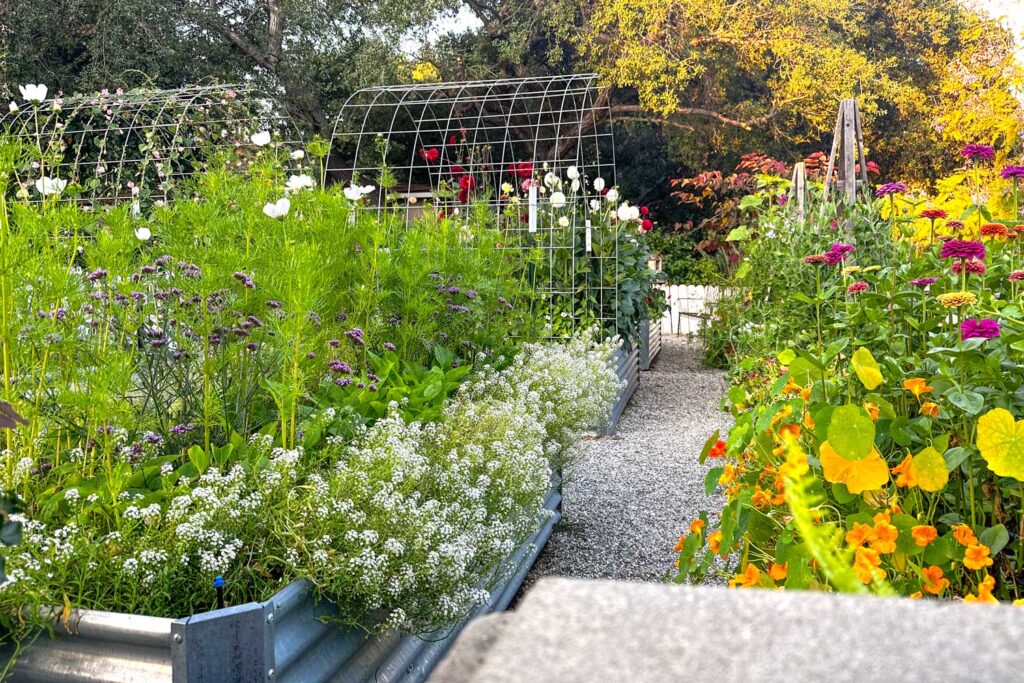
On my blog WM Design House, I may sometimes use affiliate links, which means a small commission is earned if you purchase via the link. The price will be the same whether you use the affiliate link or go directly to the vendor’s website using a non-affiliate link.
How to make eggshell tea
To make the tea, boil a gallon of water and add the grinds of about twenty eggs. Let this steep overnight. You can then strain the eggshells (so you can reuse them) or pour the tea onto your plants with the eggshells still in the water. I pour 1½ to 2 cups per plant.
I like to provide my plants with eggshell fertilizer once a month to promote growth throughout the growing season.
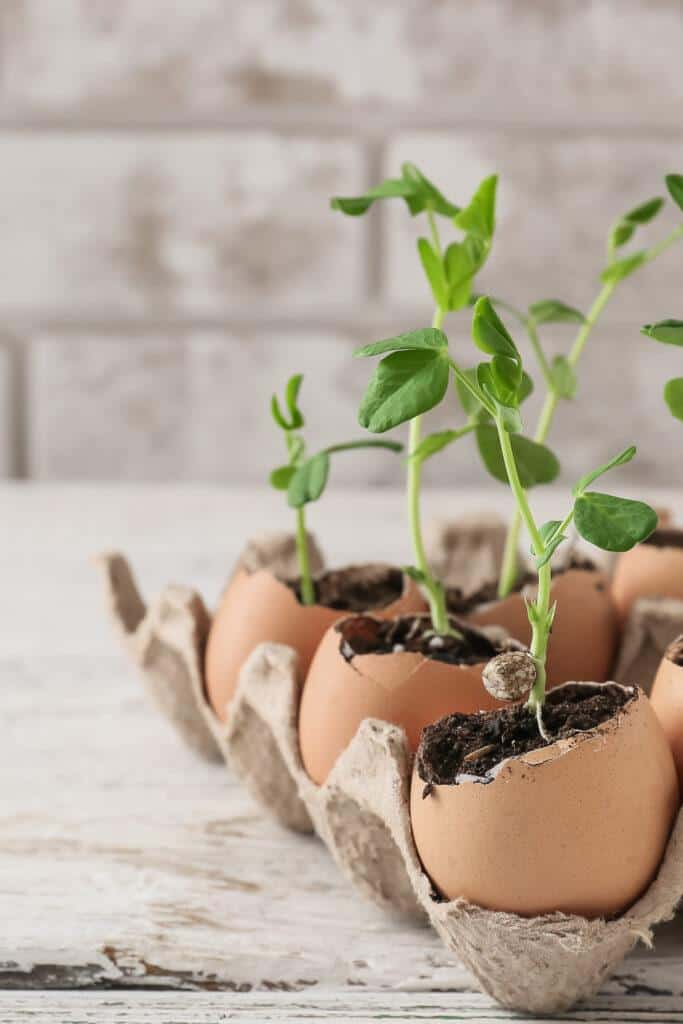
Eggshells are also an excellent starter fertilizer and container for seedlings. Place a teaspoon of the eggshell powder into the hole of the shell before planting a seed. Use an egg carton to support the eggs.
Additional Types of DIY Flower Fertilizer
Beyond these examples, you can use many other household items to make DIY fertilizer to keep garden plants healthy and happy.
Grass Clippings
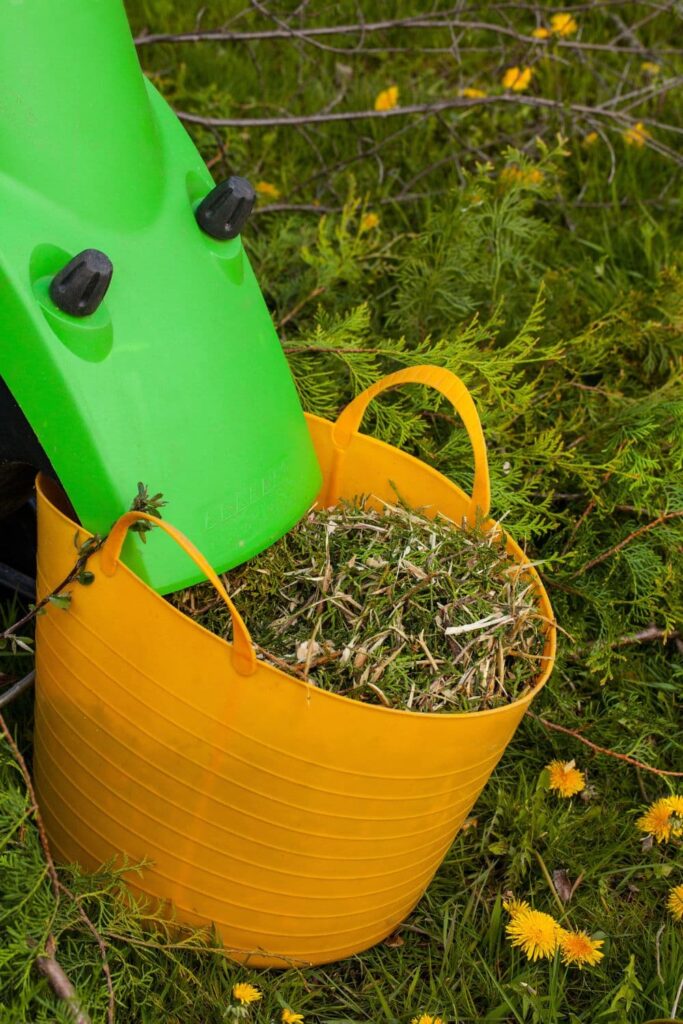
After mowing your lawn, don’t let those grass clippings go to waste. Spread them around your flower beds as mulch or mix them into the soil. As the clippings decompose, they provide nutrients such as nitrogen, potassium, and phosphorus, promoting healthy flower growth.
Aquarium Water (fresh water only)
The water you use to clean your fish tank can be a hidden gem for your flowers. Aquarium water contains beneficial nutrients like nitrogen and trace elements from fish waste. Collect the water during routine tank maintenance and use it to water your flowers. Just be sure not to use water treated with any chemicals or medications.
Compost Tea
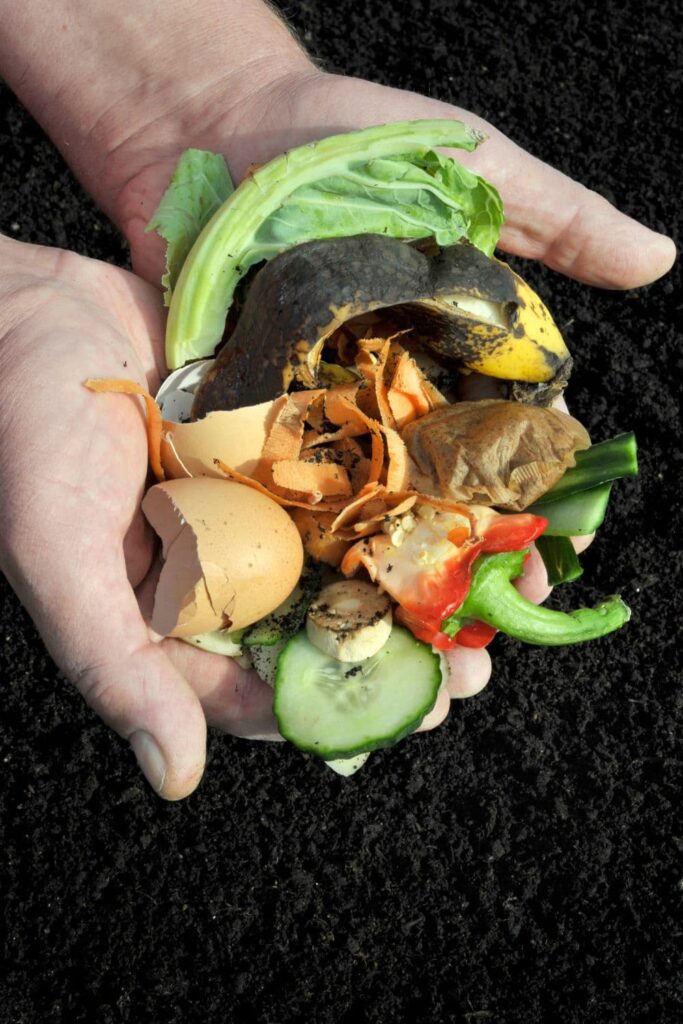
If you have a compost bin, you can create a nutrient-rich tea by soaking compost in water. Fill a container with compost and cover it with water. Allow the mixture to steep for a few days, stirring occasionally. Then, strain the liquid, dilute it with water, and use this DIY flower fertilizer to water your flowers. Compost tea is an excellent all-around fertilizer and a great way to provide your plants with a wide range of nutrients.
Green Tea
Don’t toss those used green tea bags! Green tea is a rich source of antioxidants and can benefit your flowers. Simply steep used green tea bags in water, allowing the liquid to cool. Then, use it to water your flowers or sprinkle it around the base of the plants. The nutrients in green tea can help improve the overall health of your flowers.
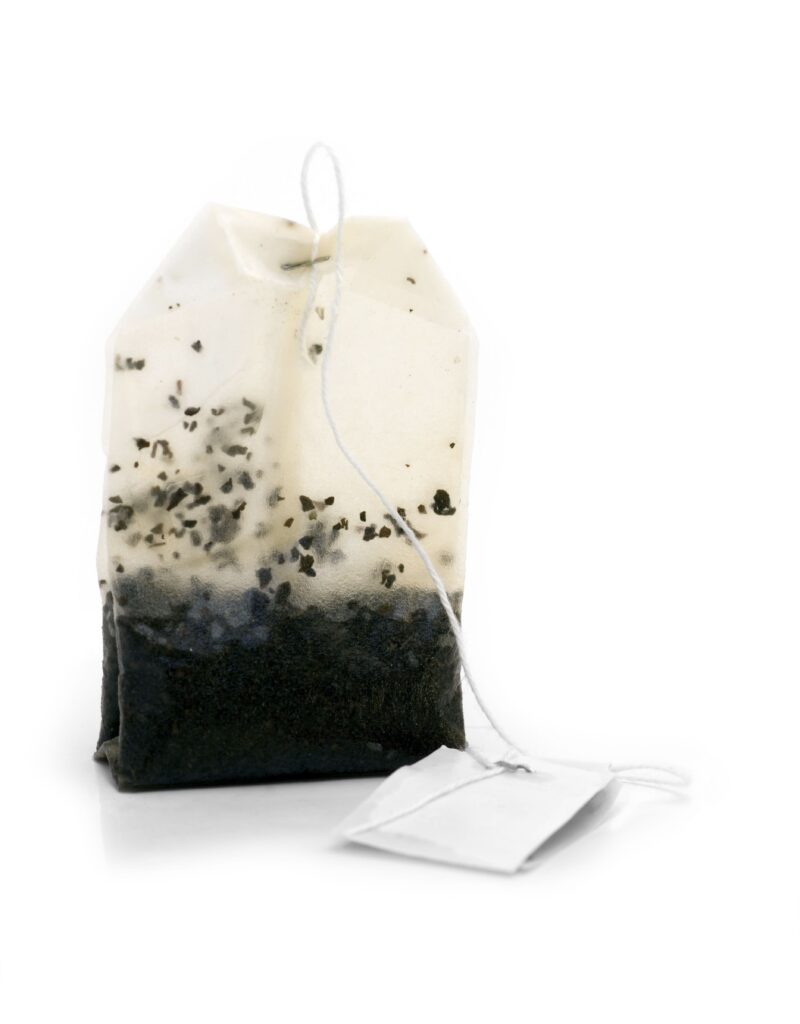
Blackstrap Molasses
This molasses is a natural and organic fertilizer rich in essential minerals and nutrients. It helps stimulate microbial activity in the soil, promoting healthy plant growth. To use molasses as a fertilizer, mix one to two tablespoons of Blackstrap molasses with a gallon of water. Water your flowers with this DIY flower fertilizer mixture, ensuring that you evenly distribute it around the plants. Blackstrap molasses also aids in improving soil structure and fertility.
Epsom Salts
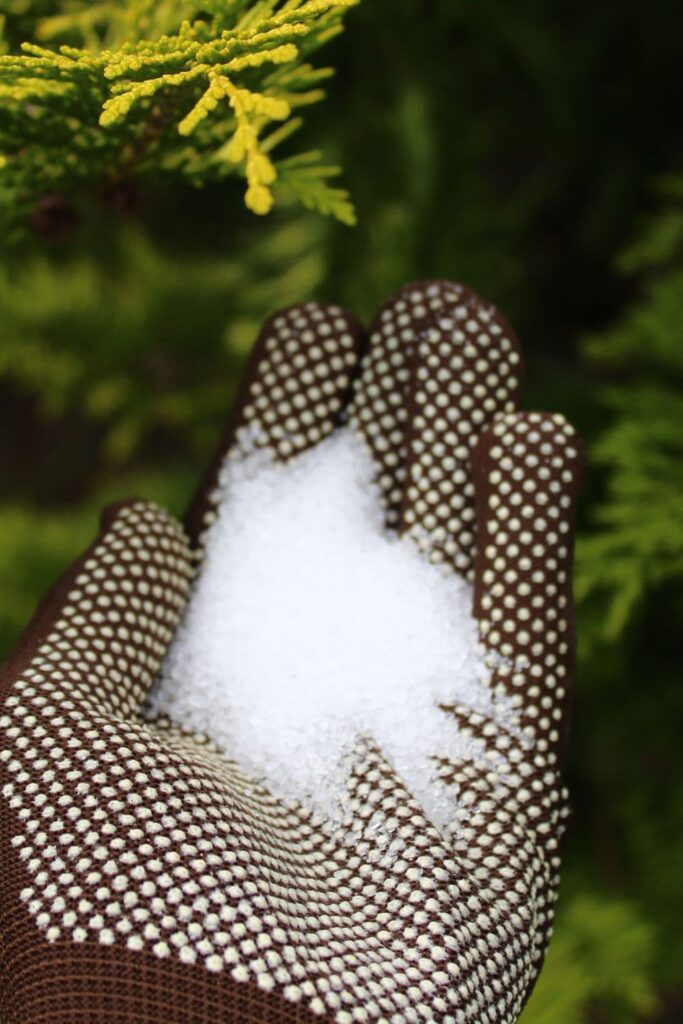
Epsom salts, or magnesium sulfate, can provide your flowers with a boost of magnesium and sulfur. These minerals play a vital role in chlorophyll production and overall plant health. Dissolve one tablespoon of Epsom salts in a gallon of water and use it to water your flowers once a month. This DIY fertilizer is a great option to help enhance flower color, improve nutrient uptake, and promote stronger blooms.
I even throw a handful of Epsom salts on my Boston Ferns and then water well, they love this as a fertilizer.
Wood Ashes
If you have a fireplace or wood-burning stove, don’t discard those wood ashes—they can be a valuable source of potassium and other essential nutrients for your flowers. Wood ashes also help raise soil pH levels. Sprinkle a thin layer of wood ashes around the base of your plants and gently work it into the soil. Be cautious with the amount you use, as excessive ash can increase alkalinity, which may not be suitable for all plants.
Gelatin Powder
Gelatin is not just for making desserts; it can also be an excellent source of nitrogen for your flowers. Mix one tablespoon of unflavored gelatin powder in a gallon of water and allow it to sit for a few hours or overnight until the gelatin is fully dissolved. Use this mixture to water your flowers, ensuring you distribute it evenly. The nitrogen in gelatin promotes lush foliage and healthy plant growth.
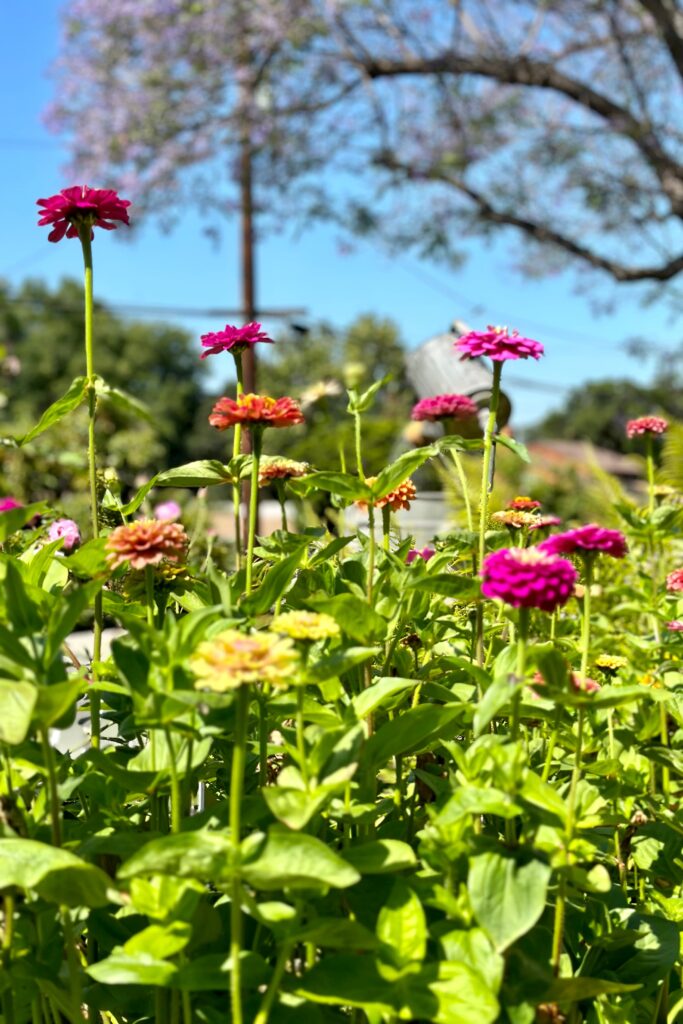
Cornmeal
Cornmeal is more than just a pantry staple—it can act as a natural fungicide and soil conditioner. It helps control fungal diseases and improves soil structure. Sprinkle a small amount of cornmeal around the base of your plants, being careful not to apply it too thickly. As it breaks down, cornmeal releases nutrients and beneficial microorganisms into the soil, creating a healthier environment for your flowers.
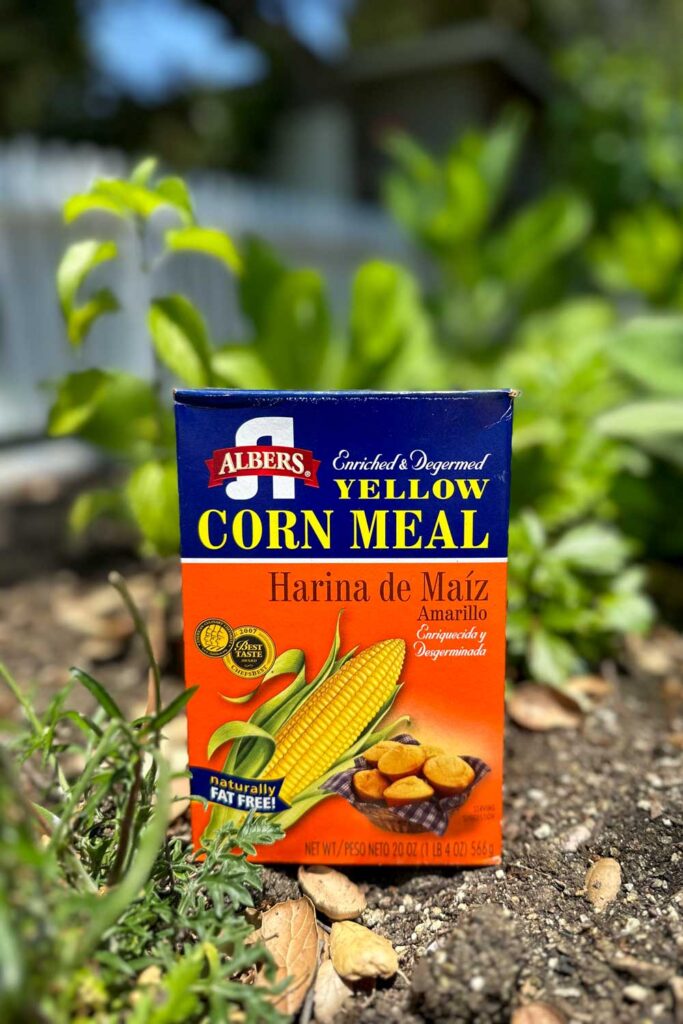
Hair Clippings
Save those clippings for your garden next time you trim your hair or have a haircut, or the next time you brush the dog! Human and dog hair is a rich nitrogen source and can be used as a slow-release DIY flower fertilizer. Chop the hair into small pieces and mix it into the soil or place it in the planting holes. As the hair decomposes, it releases nitrogen, promoting healthy foliage growth and overall plant vitality.
Cooking Water
The water left over from boiling vegetables, or pasta is a valuable resource that can make a good fertilizer. Once the cooking water has cooled, use it to water your flowers. The water contains nutrients leached from vegetables or pasta, giving your flowers a nourishing boost.
Seaweed
If you live near the coast or have access to dried seaweed, you have a wonderful natural fertilizer. Seaweed is rich in trace minerals, growth hormones, and beneficial enzymes. Rinse off any excess salt from the seaweed and either bury it around the base of your plants or create a seaweed tea by soaking dried seaweed in the water. After a few weeks, strain the liquid and dilute it with water before applying it to your flowers. Seaweed fertilizers improve soil fertility, root development, and overall plant vigor.
Vinegar
Vinegar, particularly apple cider vinegar, can be a natural acidic fertilizer for acid-loving plants such as azaleas, rhododendrons, and hydrangeas. Mix one tablespoon of vinegar with a gallon of water to water your acid-loving flowers. Vinegar helps lower soil pH to create more acidic soil and provides trace amounts of nutrients these plants require.
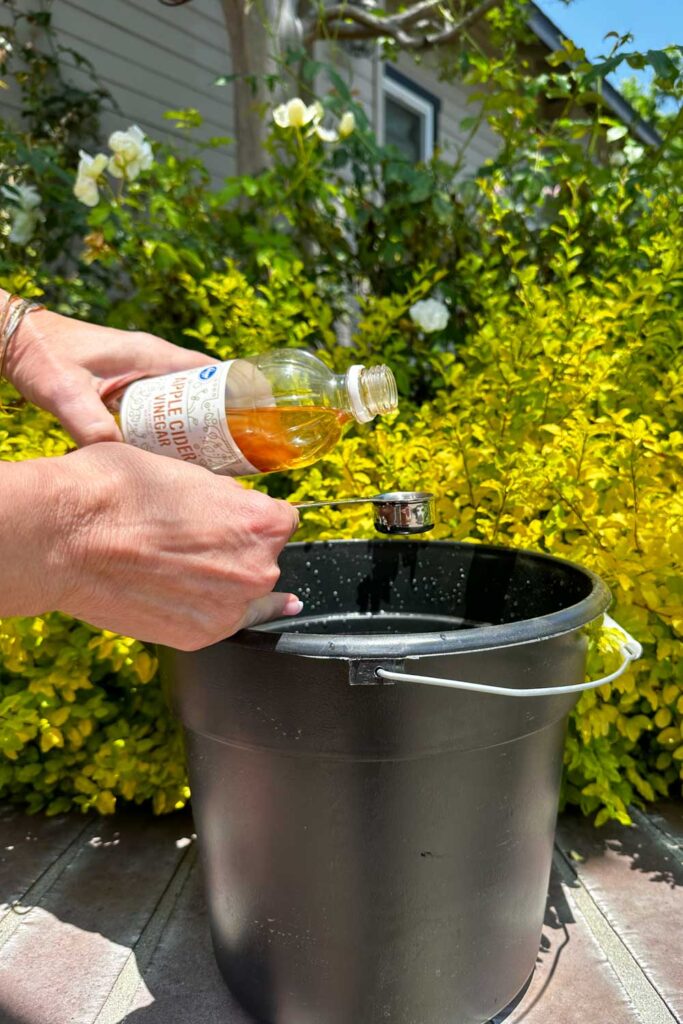
DIY Flower Fertilizer for Healthy Plants
These are just a few examples of DIY flower fertilizers you can make at home. Each ingredient provides unique benefits to plants, so feel free to experiment and find what works best for your flowers. Remember to use homemade fertilizer in moderation and follow the recommended dilution ratios for the best results. Over-fertilizing can be harmful to plants, so it’s crucial to strike a balance. Additionally, it’s a good idea to test the soil periodically to ensure you’re providing the right nutrients for your specific flower types.
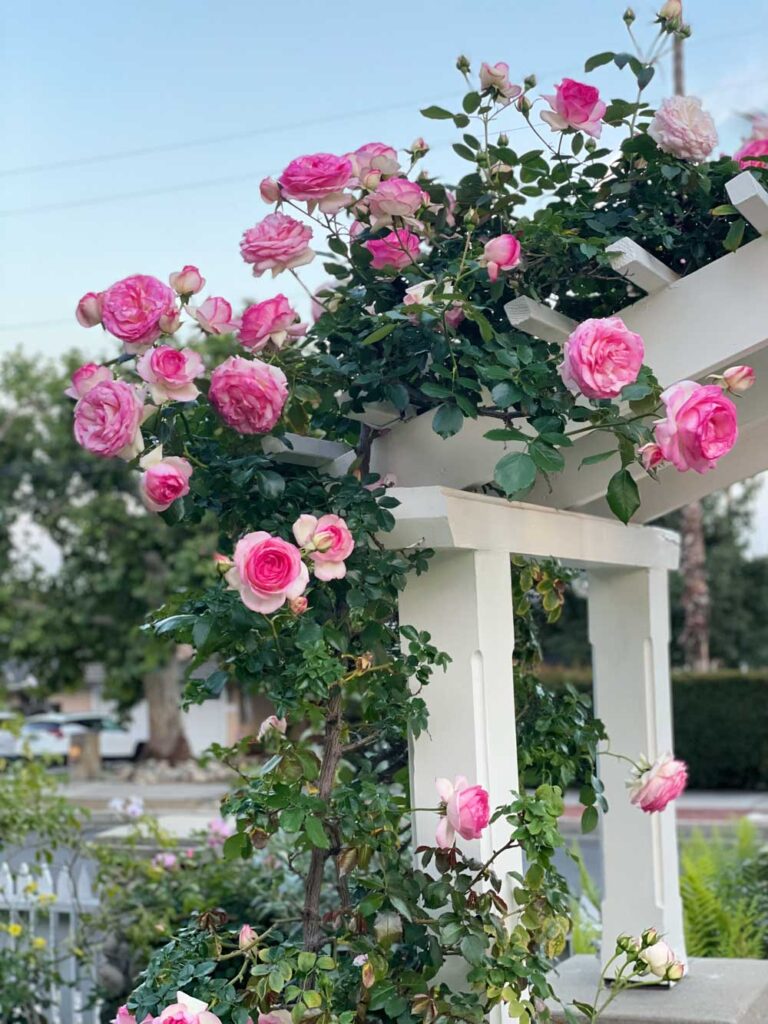
DIY flower fertilizers are an excellent way to nourish your flowers naturally while being budget friendly. Whether you opt for banana peels, coffee grounds, eggshells, or any other suggested ingredient to make your own fertilizer, you’ll give your flowers a nutrient-packed treat that will make them bloom with joy. Enjoy your gardening adventures, and happy fertilizing!


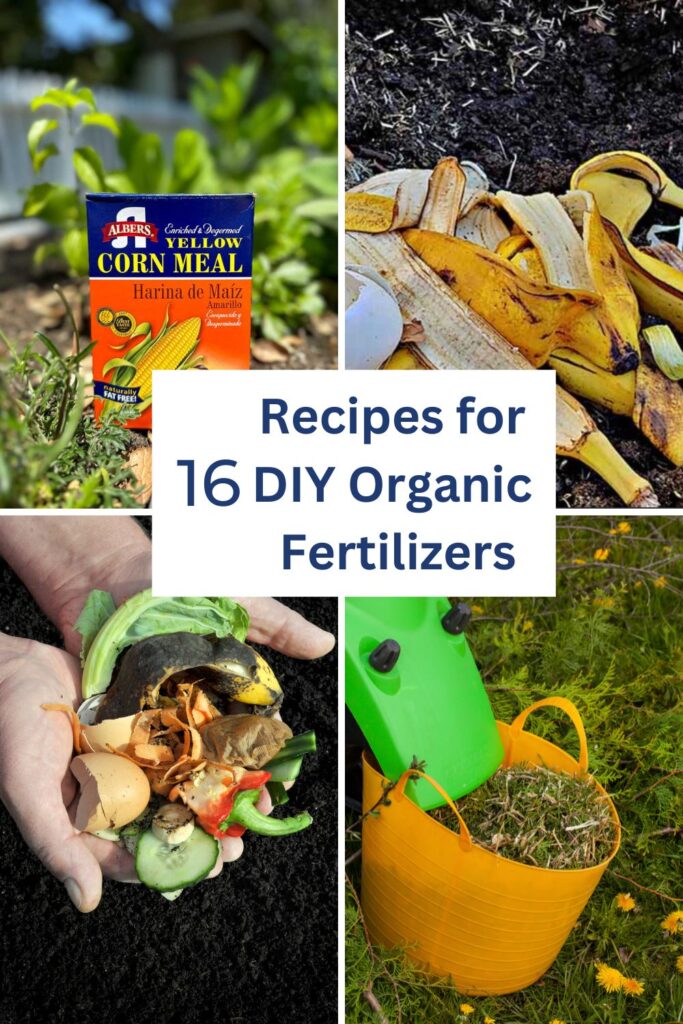
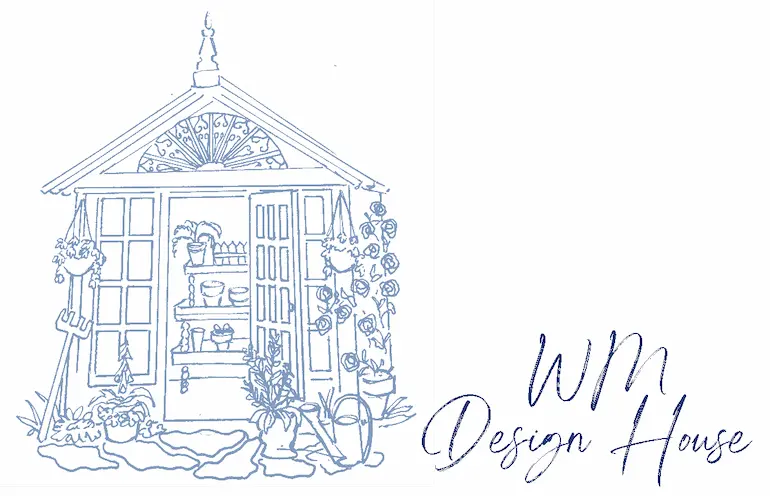
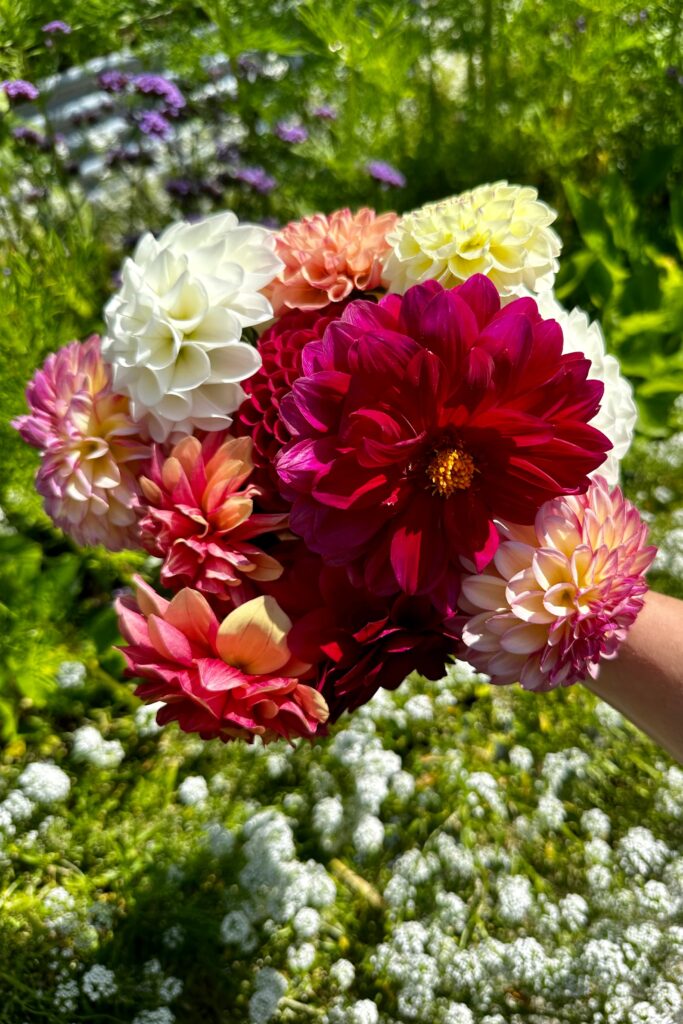
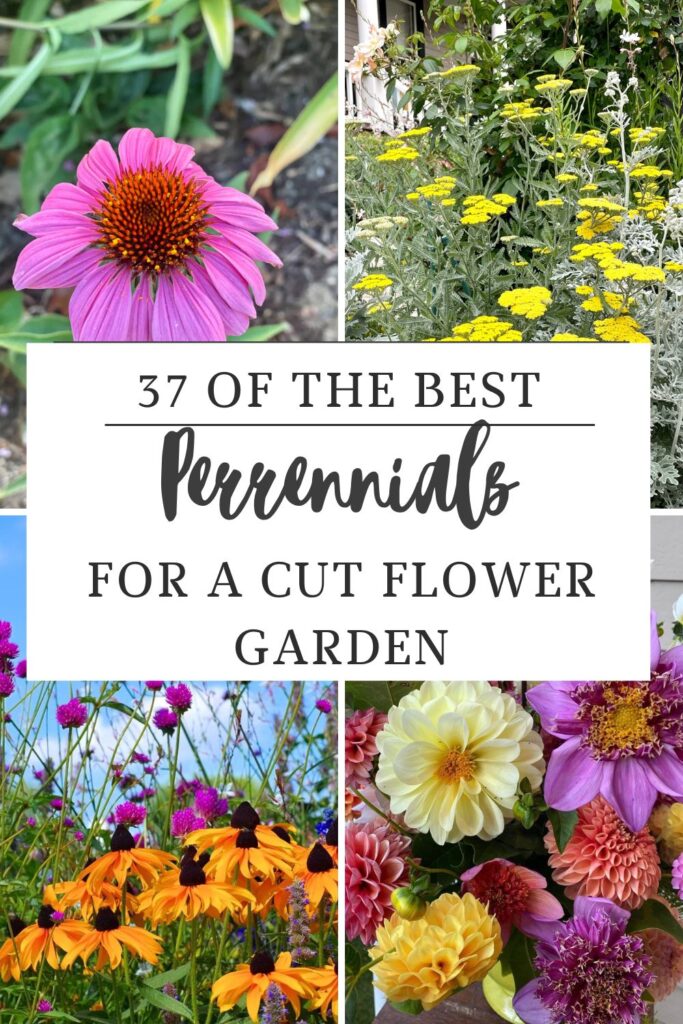

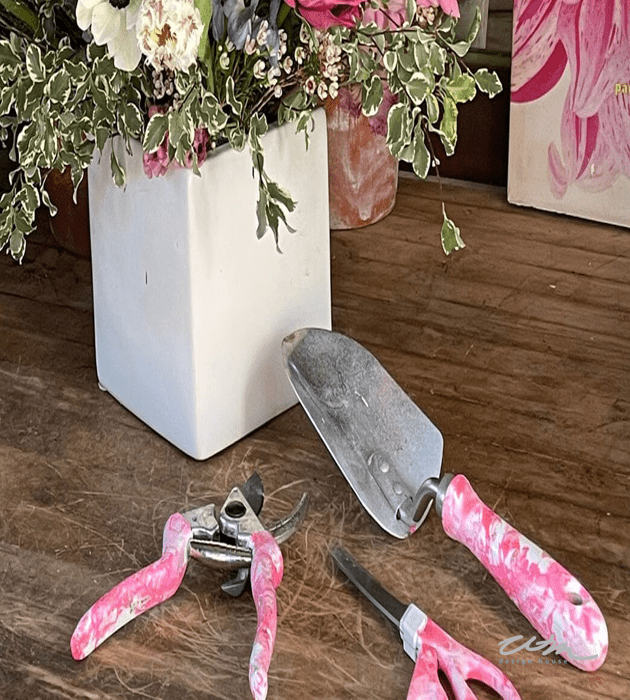
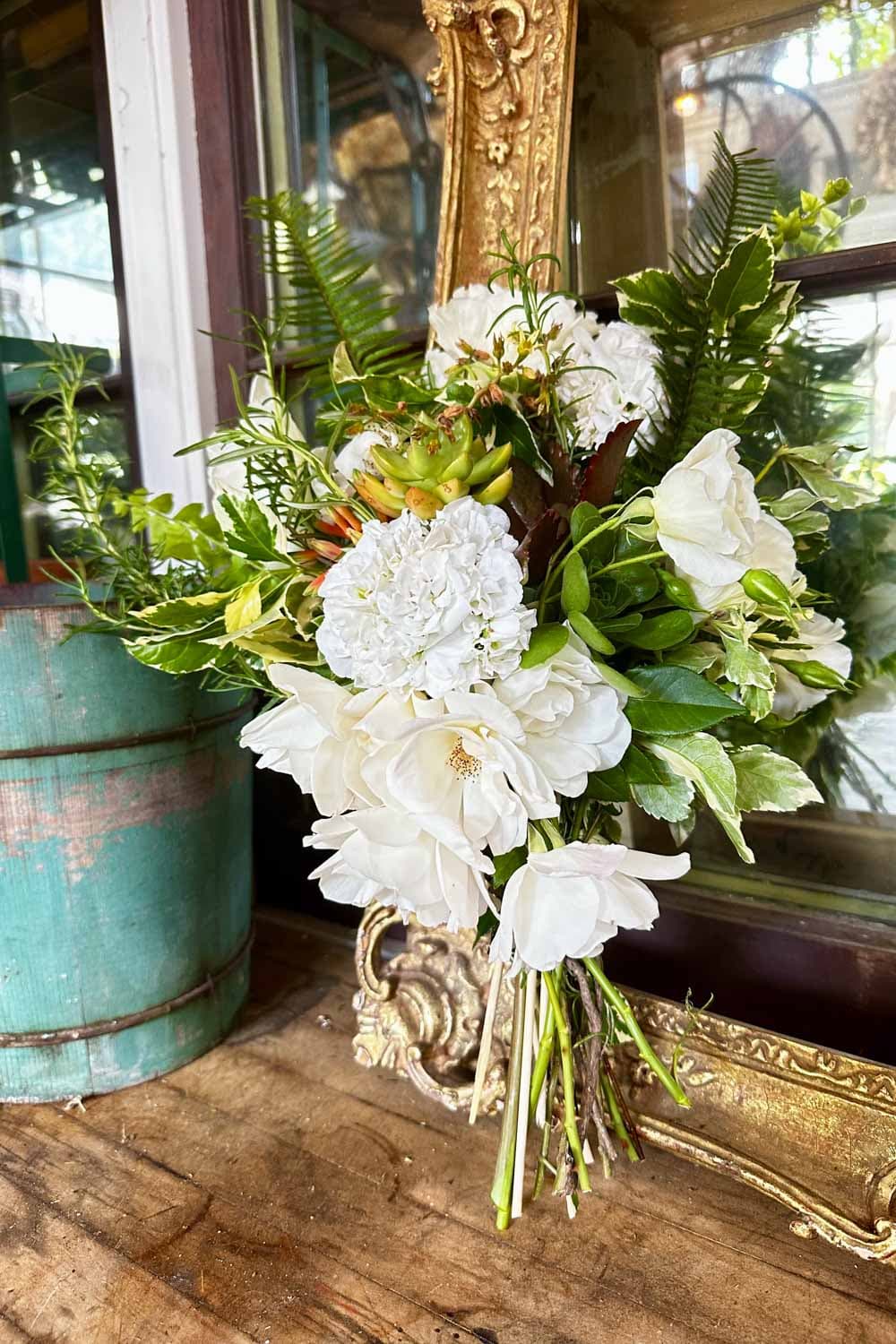
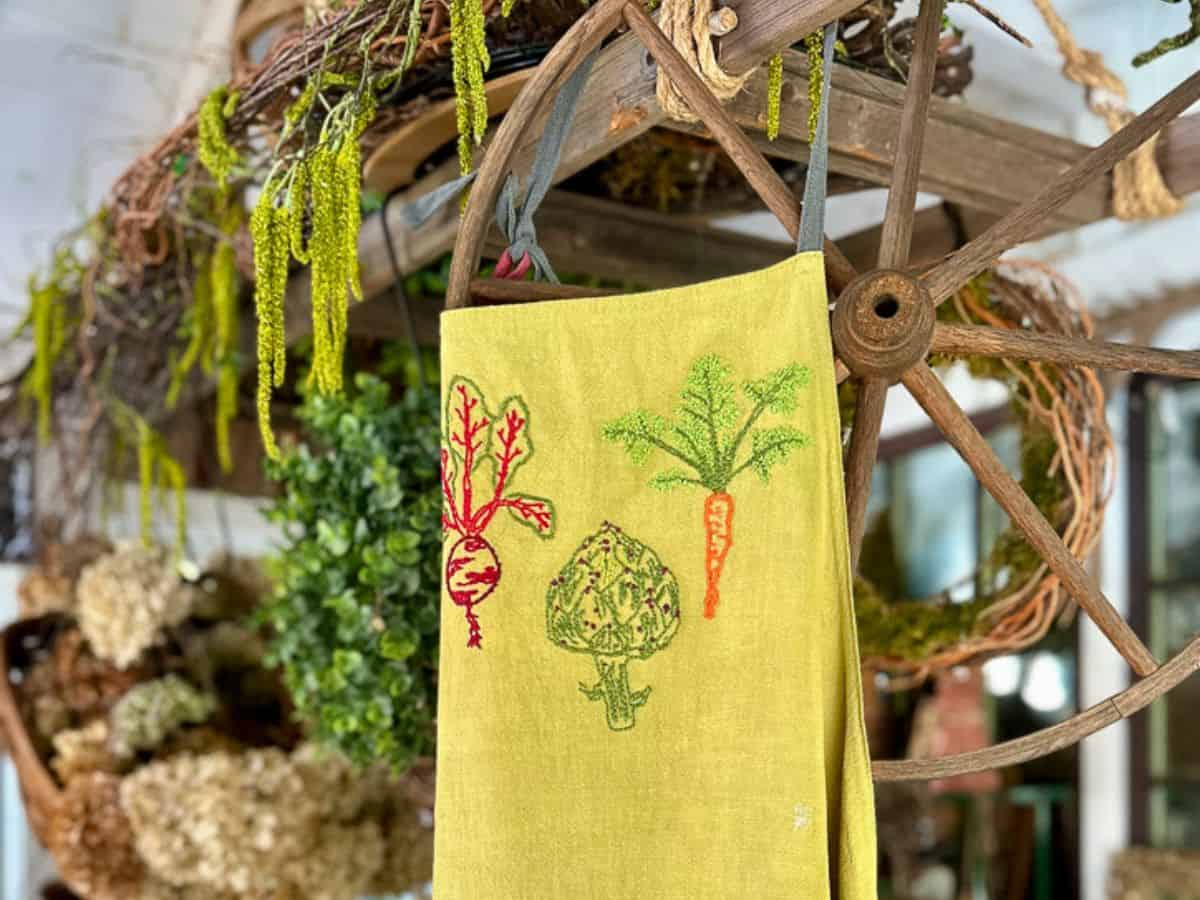
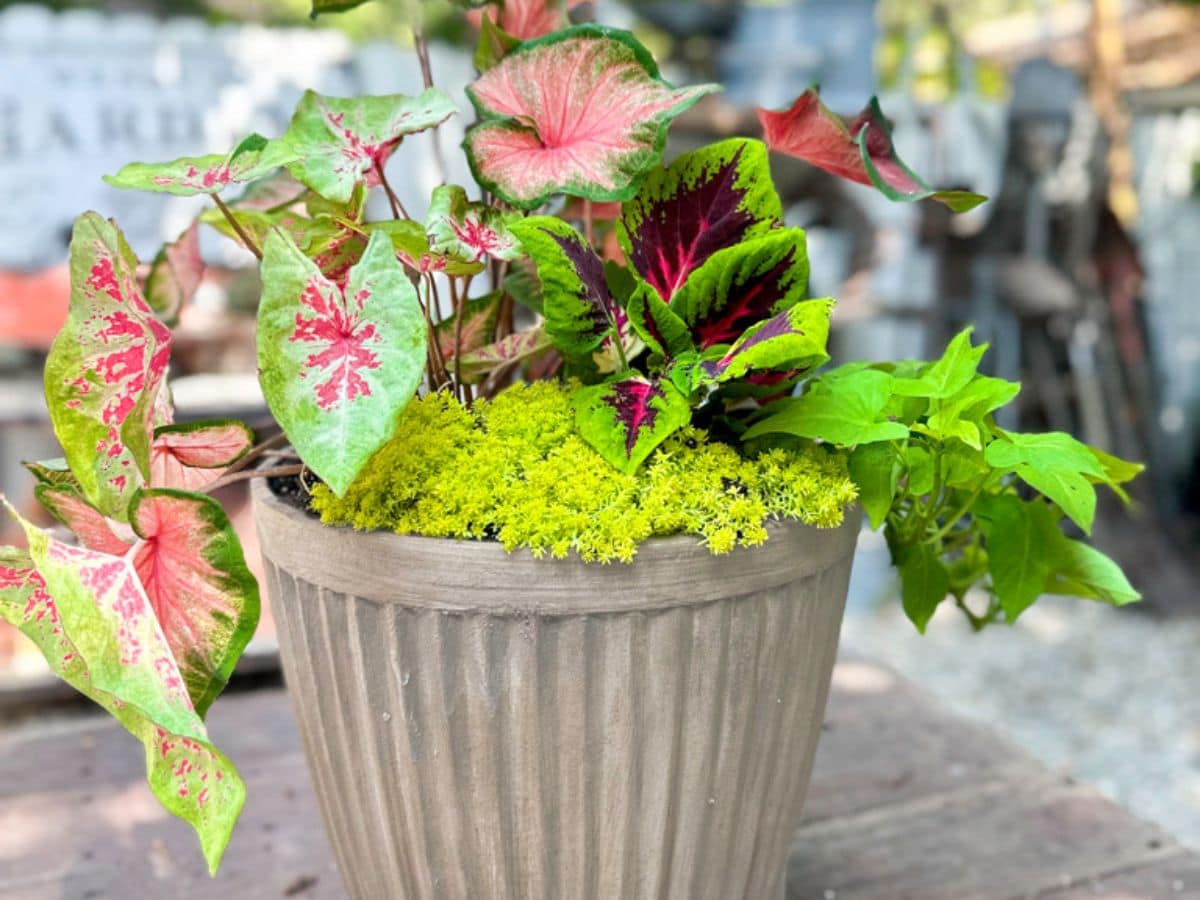
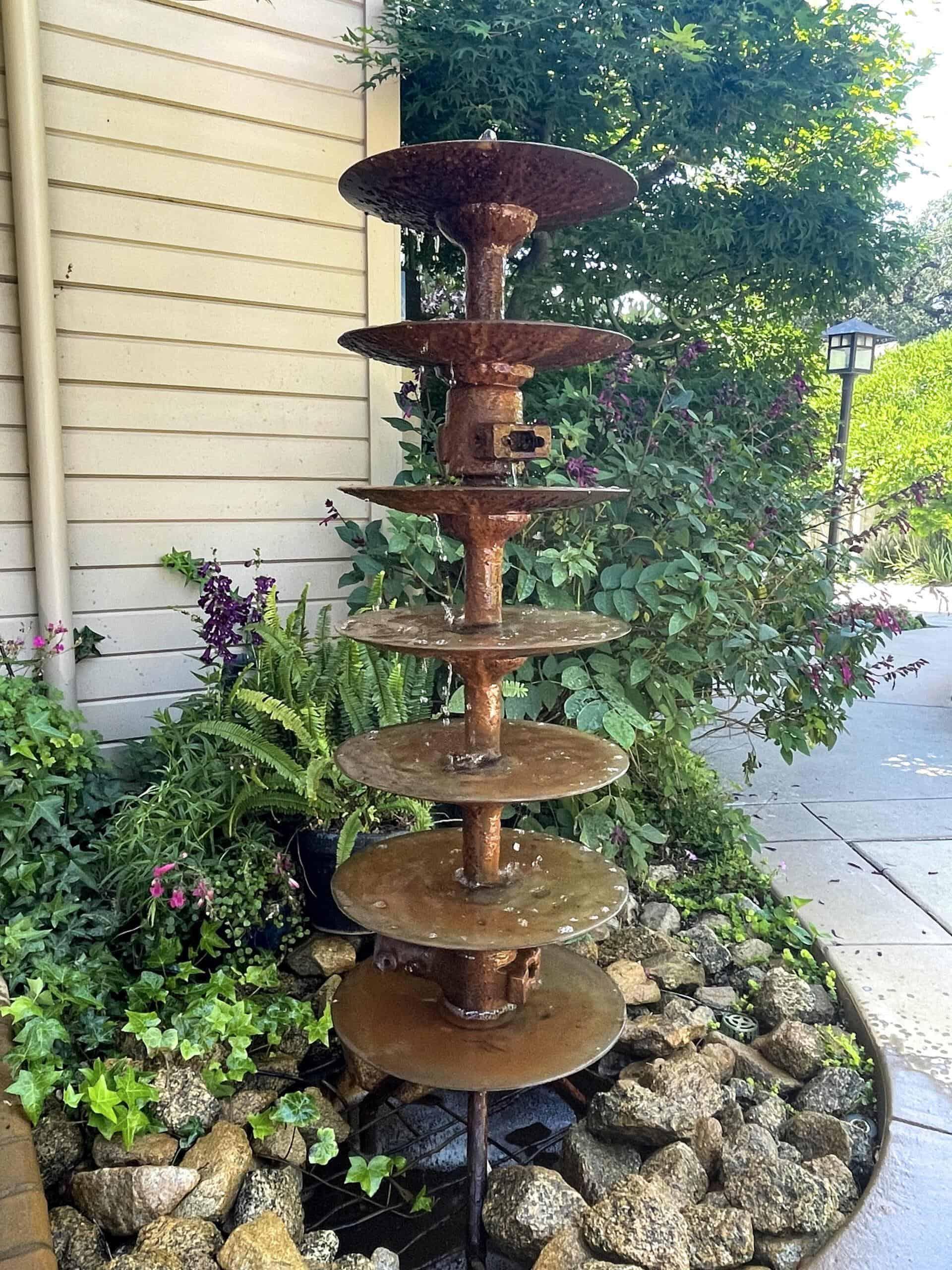
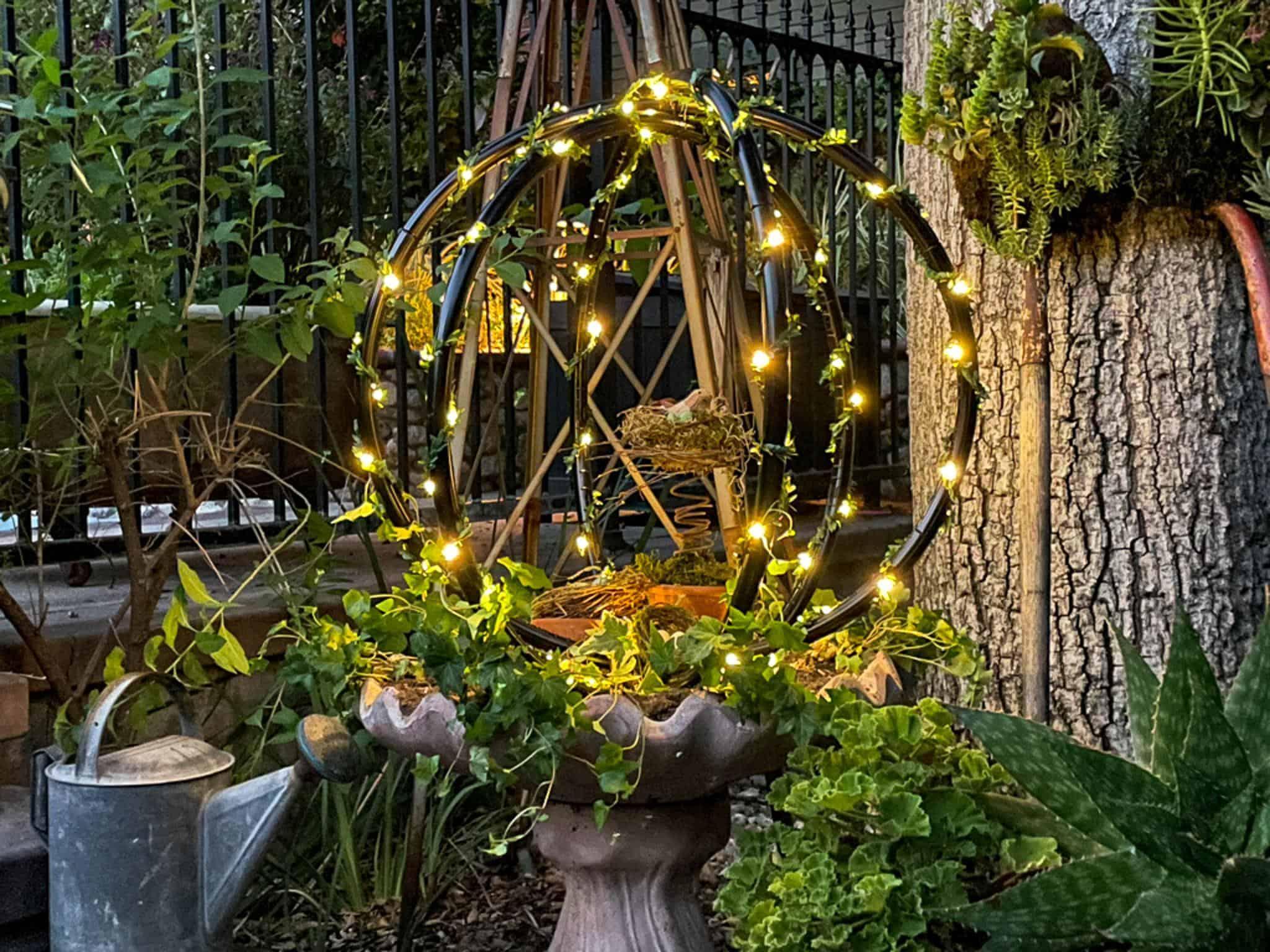
I will be trying the vinegar, I can never get my hydrangeas to bloom. Basically, I am a lost cause when it comes to growing much of anything around here, but I am hopeful I can fix it one of these days! Thank you for sharing Wendy.
I sure hope you have some success in the garden Cara.